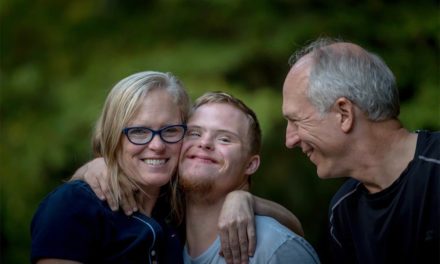When you were younger, adults probably asked you this question: what do you want to be when you grow up? When you’re a child, you may imagine your future career. Perhaps you have big dreams of being a singer, actor, or dancer. Maybe you envision yourself designing buildings or becoming an engineer. Many children imagine what their career could be. When you grow up, the choices get narrower. You go to school and discover what you’re good at and what you’d like to pursue. Sometimes this involves getting guidance from the outside. Some people see a guidance counselor or career counselor for help deciding what they’d like to do for work.
Career counseling
Students in high school often meet with guidance counselors to discuss their plans after graduation. They might want to pursue higher education such as college or university. Others are interested in vocational training, such as repairing air conditioning units and getting an HVAC certification. Some students may want to pursue apprenticeships in carpentry or plumbing. There’s nothing wrong with finding a trade to pursue. Others may be interested in commercial truck driving. Career counseling doesn’t always take place in academic environments. Adults can visit career centers and see vocational counselors to find out what they’d like to pursue work. One thing that can help is to take a career assessment.
Career assessments
Career assessments are questionnaires that help a person focus on their interests and what they excel at, so they can discover their strengths. A career counselor can provide these materials to determine your job path. It can help to see one of these professionals jumpstart your career. Maybe you’re unsure of what you want to pursue, and you need a push in the right direction. Once you take a career assessment, you’ll have a better understanding of your interests and what potential jobs you can apply for. Some common career assessments include:
- Myers-Briggs Type Indicator – This assessment tells you what type of personality you have so you can pursue jobs that highlight your best traits. You will determine if you’re an introvert or extrovert by taking this assessment. You can also find out if you’re a logical or emotional person. It’s a highly specific test that will provide clarity on your personality.
- Self-Directed Search – This is an assessment based on the theory developed by John Holland. The RIASEC theory states that people and work environments are categorized by six types: Realistic, Investigative, Artistic, Social, Enterprising, and Conventional (RIASEC). You can take this assessment and find out what your goals and dreams are and how you can achieve them.
- MAPP – MAPP assessment has 71 questions that prompt a person to input their likes and dislikes. It’s used by high schools, universities, and career counselors. The assessment is tailored to your individual personality and can help you decide what career to pursue.
A career counselor may administer these assessments or others to help guide you on the right career path.
Do what you love
It’s crucial to find a career that you enjoy. If you don’t like what you do, it’s probably not going to result in a long-term job. You have the right to find a position that you like. When you go to work each day, you want to feel a sense of purpose. Take a moment, close your eyes, and imagine what kind of job makes you feel like yourself. A career should be something you’re passionate about rather than something that causes you anxiety or misery. It’s also worth noting that you don’t have to stay in a career that you dislike. You always have the option to switch paths.
Changing careers
Most people change jobs several times in life. That being said, if you don’t like what you do, you’re not stuck. It’s okay to explore other options. You can see what kinds of jobs are out there and apply for them. Consider seeing a career counselor for guidance in how to change jobs. You might be clear that you’re done with your current position but lost as to where to go next. That’s an ideal time to consult with a career counselor. They can help you talk through some ideas about potential jobs. You also can do some soul searching with a mental health professional.
Talk about your life purpose in therapy
Therapy is an excellent place to discuss your life path, which includes the right career. Maybe you’ve always wanted to be a college professor, but something is stopping you. Perhaps you’re worried about the cost of a graduate degree. Maybe you’re worried that you’re going to fail at this position. There are many things that hold people back from pursuing their dreams. You can talk to a therapist about your goals and career dreams. A mental health professional wants to help you find the ideal career. Therapy can be an opportunity to brainstorm where you’d like to see your life go, and part of that discussion involves your career aspirations.















